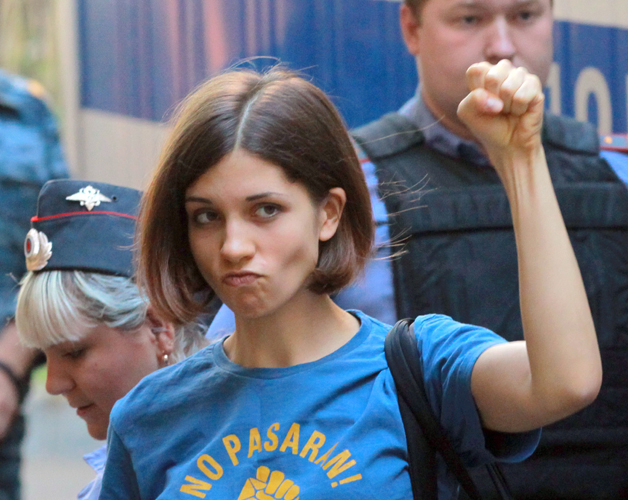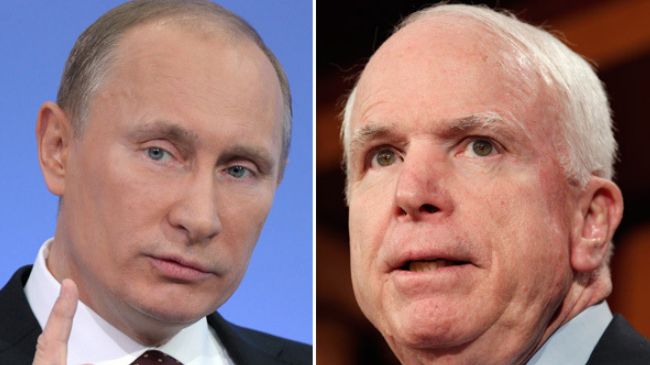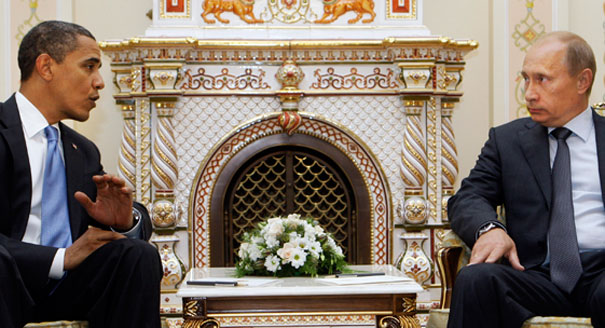(Digital Journal) -On Friday, Russian President Vladimir Putin signed a bill prohibiting American citizens from adopting Russian children.
Putin’s decision cancels a bilateral agreement regulating American adoptions of Russian children, which had come into
effect weeks ago, but which Putin described as ineffective and a case of „sham stupidity.”
The agreement, aiming to increase protection for U.S.-adopted Russian children, came as response to the deaths of 19 Russian adoptees in the U.S. since the 1990s and a 2010 incident in which an American woman sent her 7-year-old adopted son back to Russia alone on a one-way flight.
A day before signing the anti-adoption bill, which received final approval from the Parliament on Wednesday, Putin appealed to Russians’ patriotism, by stating that powerful and responsible countries should take care of their people, regardless of the fact that there are countries with better living standards than their own.
The Russian document comes in retaliation to the recently adopted US bill, signed by President Obama this month. The American bill penalizes Russia for corruption and its current human rights violations. While the American law ensures permanent normal trade relations for Russia, it is coupled with the Sergey Magnitsky Rule of Law Accountability Account, honoring the Russian whistleblower lawyer, who unveiled a $230m fraud and who died under mysterious circumstances in a Moscow jail in 2009. The bill establishes visa bans and asset freezes on Russian officials involved in his death and in other perceived gross human rights violations.
The newly passed Russian act has been called the Dima Yakovlev law, after a Russian toddler who died in Virginia in 2008, because his adoptive father left him in a locked care on a hot July day. The father was acquitted for involuntary manslaughter, angering the Russians. The law will come into force on January 1st, 2013, most immediately blocking the placement of 46 children with American, whose adoption was in process.
Putin’s decision has been met with ample dissent from within his government and ruling circle, the opposition as well as children’s rights activists.
On Thursday, the Ministry of Justice emphasized that the law violated the UN Convention on the Rights of the Child, to which Russia is a signatory. Moreover, prominent officials, such as Foreign Minister Sergei Lavrov and Deputy Prime Minister Olga Golodets, have raised concerns over the law on legal grounds.
The opposition has also slammed the bill. The newspaper Novaya Gazeta said 100,000 people had signed an online petition against the bill. The Human Rights Council, appointed by the president, claimed the law is unconstitutional, punishes innocent children and opens up new ground for corruption.
Children’s rights campaigners emphasized that Russia’s orphans should not be used as a political bargaining chip and that they will suffer most as a result of the bill, given that Russian orphanages are extremely overcrowded, that the country is unable to take care of its orphans and that its poorly run child welfare system is failing the wide majority of its children.
Despite these criticisms, Pavel Astakhov, Russia’s child’s rights ombudsman and a supporter of the bill, urged Putin to extend the ban to other countries, claiming that it should not exclusively be directed at the U.S.
There are currently around 740,000 children living in Russian orphanages. Adoptions by Russian families remain modest. In 2011, only 7,400 children were taken in by Russian parents, while 3,400 were adopted by families abroad. Over the past 20 years, U.S. citizens have adopted around 60,000 Russian children, making this the second largest number of inter-country adoptions to the U.S. after China. Around 9 percent of the number of the Russian adoptees had developmental disabilities.
Apart from banning adoptions, the Russian bill includes similar measures against Americans accused of violating the rights of Russian abroad as well as outlaw some U.S.-funded non-governmental groups. The bill is likely to further worsen relations between the U.S. and Russia, which have plummeted since Putin announced his intention to return for a third presidential last year.
 The members of the Pussy Riot punk band, Greenpeace activists and protesters jailed after the May 2012 Bolotnaya demonstration will be freed in an amnesty dedicated to the 20th anniversary of the Russian Constitution, Izvestia newspaper claims. Continue reading
The members of the Pussy Riot punk band, Greenpeace activists and protesters jailed after the May 2012 Bolotnaya demonstration will be freed in an amnesty dedicated to the 20th anniversary of the Russian Constitution, Izvestia newspaper claims. Continue reading 

